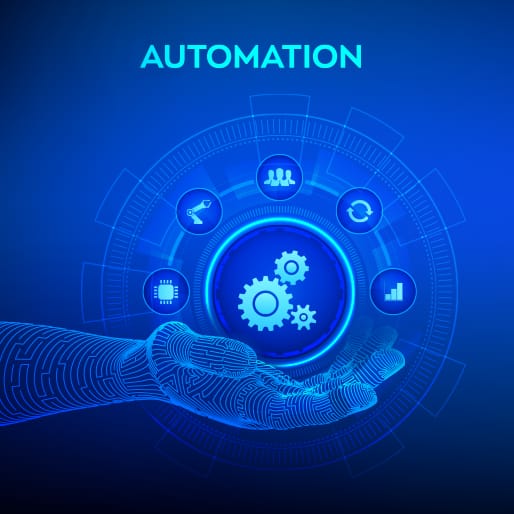Abhishek Nimdia: Advancing Enterprise Automation with Indian Engineering Expertise
India’s growing presence in the global technology landscape is reflected in the work of professionals like Abhishek Nimdia, a Senior QA Automation Engineer at Uline Inc., one of North America’s leading distribution companies. A graduate of Rajasthan University, Abhishek brings nearly two decades of experience in software testing and automation, supporting enterprise systems for major U.S. firms.
His work focuses on building efficient, secure, and scalable automation frameworks that streamline software development processes. He is also a Senior Member of the IEEE, a professional affiliation that reflects his continued commitment to technical excellence and collaboration.
Abhishek’s career path illustrates how Indian engineering talent continues to make meaningful contributions in high-impact global roles—particularly in critical areas like quality engineering and security automation.
You started your career at Infosys, an industry leader recognized as a technology innovator and the home of world-class talent. There you worked on many important projects, what projects did you work on, and how did your experience inform your career journey?
Infosys was a defining place for me, because I had the space to work on important, enterprise level projects. As the lead developer on a financial services integration platform, I designed the SOAP web services that processed over 2 million transactions a day for a Fortune 500 company. This solution alone decreased system latency by 40%, as well as became the definition of this type of solutions across the company. Partly, I believe Infosys was great, because they allowed engineers like myself to be innovators. When I moved into quality assurance, I spearheaded our team’s shift-left testing strategy, and decreased post-deployment issues by 65%, which became our standard model across the company.
You’ve also been active in your Security Champion role at Uline. What does that involve, and how is the rise of AI transforming this space so rapidly?
Taking on the Security Champion role at Uline has been a great opportunity and shift in how we integrate security thinking into every layer of our development lifecycle. The role isn’t just about overseeing compliance or performing routine checks—it’s about embedding a proactive security mindset into engineering teams, aligning closely with product development and QA.
What’s changing rapidly is the attack surface. AI has significantly raised the stakes—not just in how adversaries operate, but also in how we defend. Tools that once took days to analyze vulnerabilities now use LLMs to suggest fixes in real-time. But that also means attackers are using AI to probe for weaknesses more intelligently. So the Security Champion’s role is evolving to include AI literacy, model integrity evaluations, prompt injection threat modeling, and guiding ethical usage of generative tools within our pipelines.
Congratulations on being awarded with the exclusive BrainTech Awards in the category of the Best QA/QC Specialist. Tell us a bit about that recognition, and what that represents for Indian professionals in the global tech landscape?
I truly feel honored to be recognized by the BrainTech Awards committee. The nomination is a reflection not only of my individual journey, but also of the continuing growing recognition of Indian talent for their contribution to the global technology ecosystem. When I started my career at Infosys in 2007, Indian engineers were mainly seen as implementation folks, but we have now been recognized for our contributions to innovation and thought leadership in emerging practices like DevSecOps and API security automation.
What is particularly special to me is that this recognition is representative of how what we think of as ingrained efficiency and scalability in Indian technology culture has now become part of global best practices. Frameworks we implemented and developed at ULINE incorporated concepts that I first met in India’s ambitious technology space.
In your time at ULINE, the largest distributor of shipping supplies in North America, you did workflow automation, how did that specialization develop?
I’ve been with ULINE since 2017 managing large, enterprise-sized projects with complex requirements. I became interested in “security” in 2019 when I realized that our automated testing systems could put us at risk too – specifically regarding our data. I prepared extensively to dive into DevSeOps and to learn the complexities of building automation in the security space. I’ve had a lot of experience in building tools that eliminated organization’s reliance on third-party products and incorporated security into it. I’ve been involved in a very similar but a little more complex work right now. I had the support of leadership at ULINE.
What advice would you give to young engineering graduates who are looking to build a career in automation?
I’d say the foundation you receive through your engineering education in India is strong—but staying relevant requires continuous learning and adaptability. The technical skills I developed early on—like Java, Python, and system architecture—were essential, but what truly accelerated my career was my willingness to evolve with the industry.
Today, I strongly recommend building a robust understanding of cybersecurity. It’s no longer just the responsibility of security teams; whether you’re in QA, DevOps, or backend development, security is now everyone’s job. As AI transforms how systems are built and breached, having a grounding in cybersecurity principles—like threat modeling, secure coding, and vulnerability management—is crucial.





























